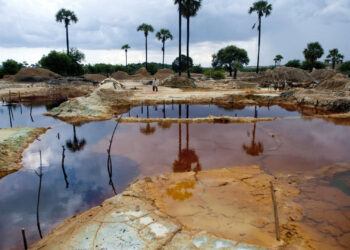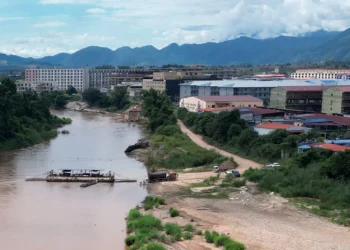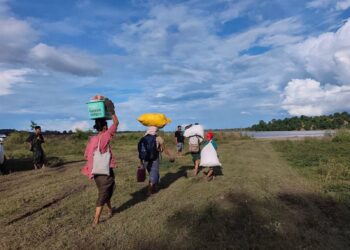Residents of Rakhine State’s Kyaukphyu Township are grappling with food and medicine shortages amid a junta blockade as the rebel Arakan Army approaches.
Kyaukkphyu on the Bay of Bengal is home to a Chinese-invested Special Economic Zone and oil and gas pipelines that the regime is desperate to protect.
Like other townships in Rakhine, Kyaukphyu has been blockaded by the military since the ethnic AA launched offensives against the junta late last year. So far the AA has seized 12 of Rakhine’s 17 townships, but Kyaukphu remains under junta control.
“People are facing shortages of essential goods like rice, onions, oil, medicine, and gasoline” due to the blockade, a Kyaukphyu resident said. “At the same time, the military is reinforcing its presence in the town and tightening security.”
The price of gasoline has skyrocketed to 35,000 kyats per liter as a result.
“We no longer see any motorcycles or cars on the road. Instead, each household has a bicycle for neighborhood trips,” said a resident.
People are forced to wait in long queues in markets and convenience stores every time they want to buy anything. The price of rice, oil, potatoes, and other staples has increased five to 10 times.
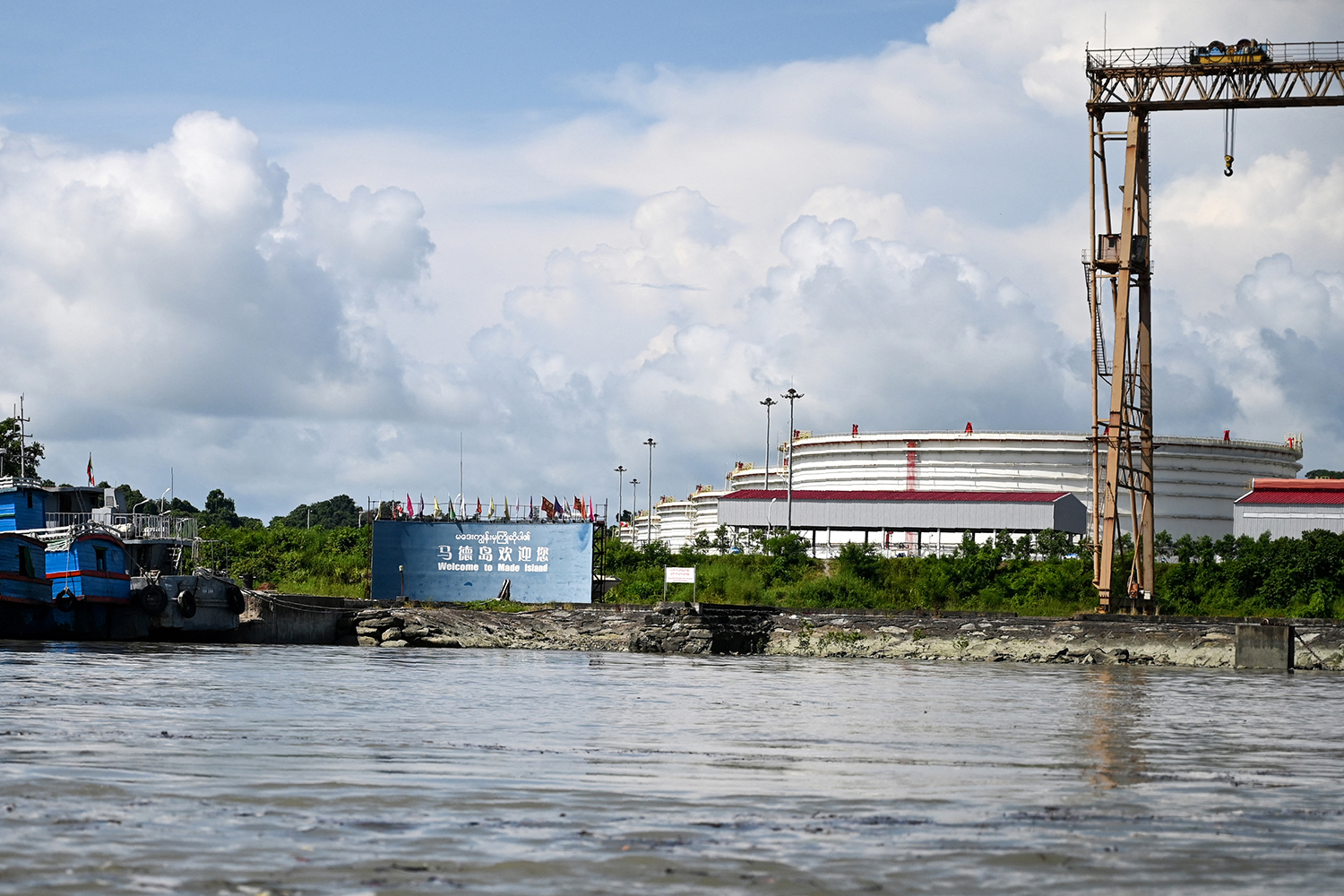
While there are currently no active clashes in and around Kyaukphyu Township, residents remain deeply concerned about the potential for a major conflict as AA forces close in from all sides.
Residents said the military has been sending a steady trickle of reinforcements by water and air since the middle of last month.
A member of a local Civil Society Organization said people can no longer pursue their livelihoods due to restrictions imposed by junta troops. Residents are frequently stopped, arrested, and interrogated if they are suspected of having ties to the AA.Local people said the regime’s main aim is to protect the Chinese projects there.
Kyaukphyu is a major hub for Chinese investments. A deep-sea port project there is the planned end-point of a cross-Myanmar railway that will give China strategic access to the Indian Ocean, and Kyaukphyu is also the starting point for two oil and gas pipelines, operational since 2013 and 2017 respectively, that run to China Yunnan region.
Junta boss Min Aug Hlaing promised Chinese Premier Li Qiang last month that Myanmar would make every effort to ensure the safety of Chinese personnel, institutions, and projects.
While the junta has issued no official statements, local media reports suggest that the Kyaukphyu SEZ management committee and China’s CITIC Group have formed a security group to protect the area from potential attacks by the AA.
For several months now, China has proposed establishing a joint security company with Myanmar’s junta to safeguard Chinese projects and personnel. In response, the junta formed a working committee on Oct. 22 tasked with drafting a memorandum of understanding to set it up.
A Rakhine conflict analyst pointed out that Chinese investors have employed Chinese security personnel to guard their projects on Maday Island for several years, and it is highly likely that similar measures are now being implemented in Kyaukphyu.
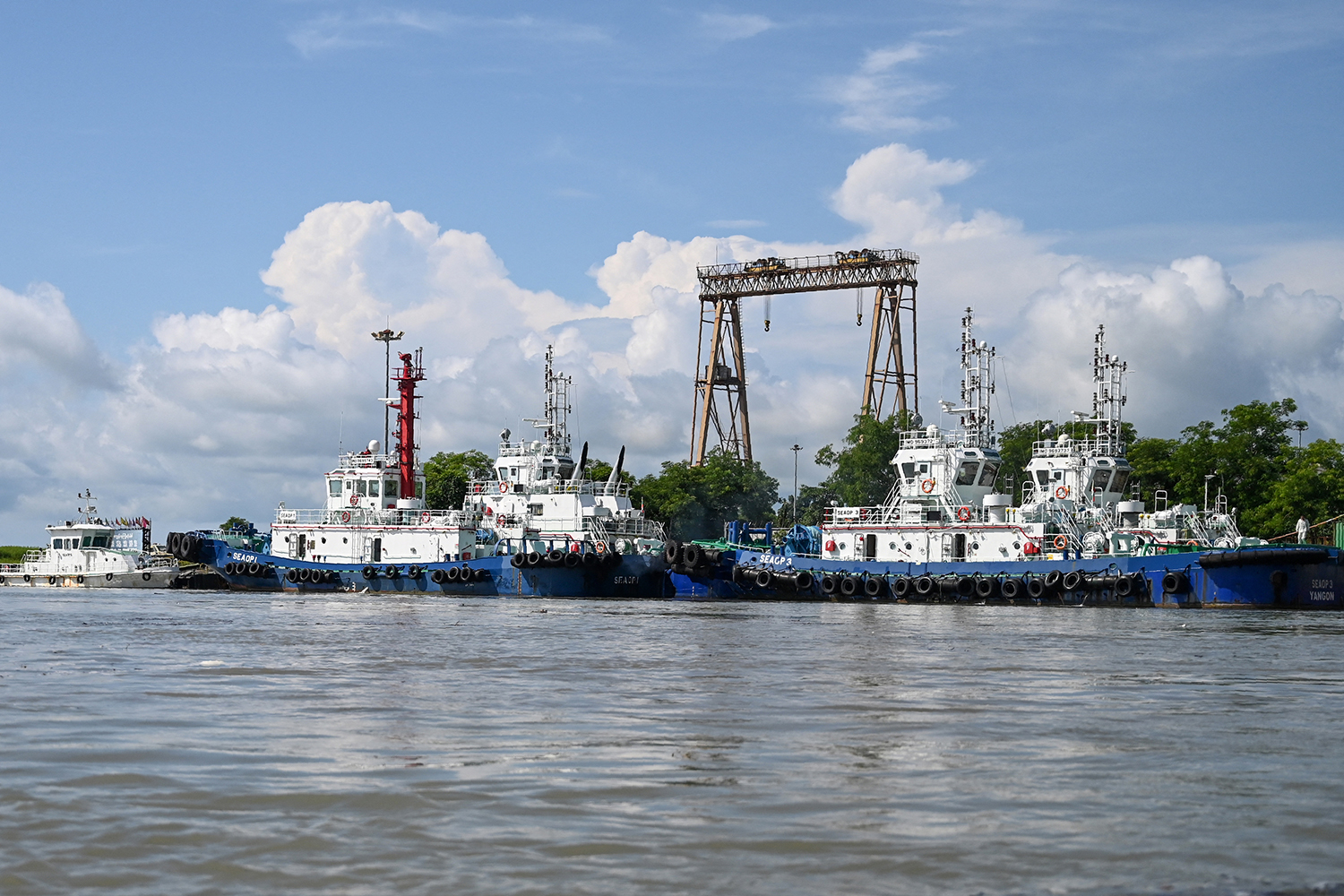
The township remains heavily guarded by the junta’s military bases, including the Danyawaddy naval base, Infantry Battalions 34, 542, and 543, Light Infantry Battalion 542, 543, and No. 32 Police Battalion, the district police station, and the township police station.
The only way to leave is by air as public roads and waterways are no longer open. Residents who wish to leave Kyaukphyu must fly to Yangon, but airfares are exorbitant at around 500,000 kyats for a one-way trip. This is more than double the 200,000 kyats for domestic flights between other destinations such as Yangon to Mandalay.
Residents said they are being watched more closely and increasing restrictions on their free movement are being imposed by junta troops. According to local media reports, at least seven people were arrested in September on suspicion of smuggling food and supplies.
“We are very concerned,” a resident said. “Food, medical supplies, and other necessities are now in very limited supply, and we are worried about the possibility of renewed clashes.”
He added that while the wealthy can still afford to leave the town by air or purchase essential goods for household use, the rest of the population is facing significant hardship.
“I urge both sides to negotiate a way to allow people to trade goods and necessities between Kyaukphyu and nearby townships, or to find a solution to ensure that people can obtain what they need,” he added.




